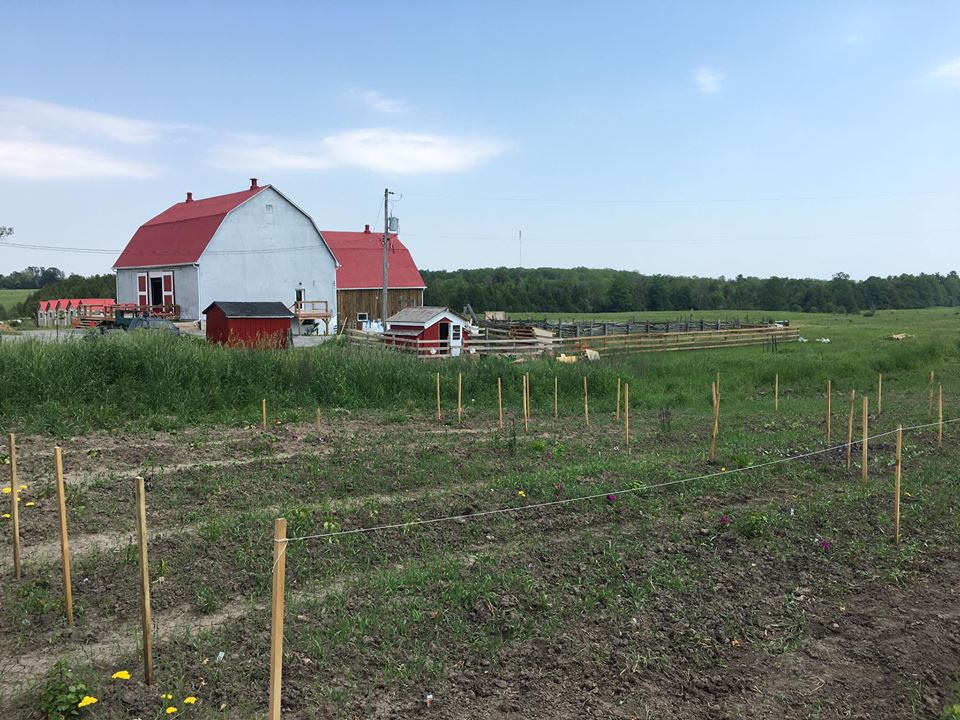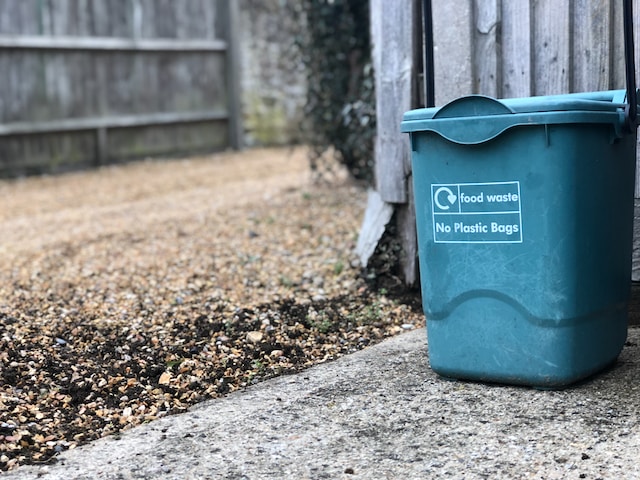
The Farm at Feed It Forward
July 17, 2020
Chefs lead humanitarian mission in Ukraine
August 28, 2023
Food waste is a worldwide issue. Buying more than you need drives up production worldwide, fueling a systemic problem. While you may not be able to change the world, using a few sustainable practices at home can make a difference.
There are many intelligent solutions for home food waste. You can reduce your consumption, reuse foods in unique ways before you throw them out, and try out some proper food disposal techniques. Small, everyday changes can drastically cut down on the volume of discarded food. There are excellent tools, strategies, and practices to help forge a path to a more sustainable lifestyle.
Food waste management can help improve the world, but it can also majorly help your grocery bill. If you have an abundance of ingredients, knowing how to make them last longer, utilize them better, and dispose of them can make a big difference to you and your family in the long run.
With more complicated appliances come more complicated installation processes. Make sure you have the needed space and utilities before you buy an appliance. A food waste disposal unit may require plumbing modifications, while a smart fridge may need a solid WiFi connection. You’ll also want to ensure your new appliance is energy efficient and not a noisy nuisance within the home.
One of the best ways to ascertain which products are best and which to avoid is by checking out what people have to say about the products. Customer reviews provide great insight into the strengths and weaknesses of an appliance. Retailers and home improvement consultants may have some wonderful insight they’re willing to share.
Smart solutions are improving each year, and they can be very helpful in reducing your food waste. With a bit of research, you can get all the info before you make your purchase, ensuring you’re getting the best product that matches your needs and budget.
There are many intelligent solutions for home food waste. You can reduce your consumption, reuse foods in unique ways before you throw them out, and try out some proper food disposal techniques. Small, everyday changes can drastically cut down on the volume of discarded food. There are excellent tools, strategies, and practices to help forge a path to a more sustainable lifestyle.
Food waste management can help improve the world, but it can also majorly help your grocery bill. If you have an abundance of ingredients, knowing how to make them last longer, utilize them better, and dispose of them can make a big difference to you and your family in the long run.
Ways to reduce food waste at home
Useful strategies and some fun creativity can help you reduce food waste at home. Repurposing leftover ingredients, transforming unused vegetables into flavorful soups and stir-fries. Implementing portion control techniques during meal prep can also help prevent excessive leftovers that often go to waste.- Expiration dates: Understanding expiration dates is crucial in reducing food waste. “Best before” dates indicate freshness, not spoilage. Using the smell test can often determine if food is still good to eat.
- Shelf life: Extending the shelf life of products by freezing fruits and vegetables, pickling, or canning them. Proper storage is important to prevent spoilage and cross-contamination.
- Meal prep: Proper meal planning in advance can help avoid over-purchasing and reduce waste. Make meals to freeze for an extended lifespan. Use leftovers creatively in new dishes.
- Waste disposal: Proper disposal is crucial for waste management. Separate organic and inorganic waste. Organic waste, like fruit peels and vegetable scraps, can be used for composting to create nutrient-rich soil.
Expert tips for buying smart solutions
Smart appliances provide many smart solutions that you can implement in your home. Before you buy all the latest and greatest smart tech on the market, there are some factors you’ll want to consider. Start with some research. Many smart fridges and freezers incorporate features to tackle food waste. They help you monitor expiration dates and may include food waste disposal units and indoor composting machines. You want a machine that suits your needs best.With more complicated appliances come more complicated installation processes. Make sure you have the needed space and utilities before you buy an appliance. A food waste disposal unit may require plumbing modifications, while a smart fridge may need a solid WiFi connection. You’ll also want to ensure your new appliance is energy efficient and not a noisy nuisance within the home.
One of the best ways to ascertain which products are best and which to avoid is by checking out what people have to say about the products. Customer reviews provide great insight into the strengths and weaknesses of an appliance. Retailers and home improvement consultants may have some wonderful insight they’re willing to share.
Smart solutions are improving each year, and they can be very helpful in reducing your food waste. With a bit of research, you can get all the info before you make your purchase, ensuring you’re getting the best product that matches your needs and budget.

Smart solutions for food waste
There are three excellent solutions for food waste that are worth considering: garbage disposal units, trash compactors, and compost machines. Each offers a unique approach to waste management – they either reduce the volume, transform the waste into something useful, or process it in an eco-friendly way. Learn all about the features and benefits of these food waste solutions to determine which one is right for you.Garbage disposal units
You can usually find garbage disposal units under the kitchen sink. They can be a practical and efficient solution for food waste management. Their purpose is to grind food waste into small particles that wash down the drain, which significantly reduces the amount of waste that would otherwise end up in the trash.Many people love garbage disposal units – or garburators – because they simplify kitchen cleanup. They eliminate odorous food waste immediately and keep the kitchen looking fresh and clean. Consider the grinding power, which relies on the motor’s horsepower and the type of feed. Batch feed models require a stopper lid, which is often safer. Continuous feed models work as long as the switch is on.
To make your garbage disposal unit last as long as possible, you’ll need to maintain it consistently. Hard or fibrous waste, such as bones or husks of corn, can damage or clog the unit. Regularly clean it with a mild detergent and cold water to prevent smells. Run the unit regularly to prevent rust and corrosion. These units come in handy for dealing with waste, and you’ll find them in new homes.
Trash compactors
Trash compactors – also known as food compactors – compress or compact waste to significantly reduce its volume. They work by using a metal ram to compress the waste into a specially designed bag. Food compactors reduce the volume of waste, which means fewer trips to take out the trash. This means fewer garbage bags used over time, cutting down on your overall plastic waste. An added bonus to this appliance is a reduction in pest-related issues. Compacting the trash eliminates space and food sources that might attract bugs.Consider a compactor’s size and capacity before you buy. The appliance’s capabilities should align with the amount of waste your household generates. Some models are quieter than others, so noise can play a factor in what model you purchase. You’ll also want to think about ease of use and maintenance. A model with an anti-jam function is designed to be easier to use and clean. Trash compactors can be a valuable addition to any kitchen, helping to contribute significantly to waste reduction.
Compost machines
Composting is a process that takes organic material like food scraps and yard waste and transforms it into nutrient-rich soil. Composters allow you to do this process from within your home in an efficient, odor-free, and environmentally friendly way. These machines accelerate the decomposition process by maintaining optimal conditions for the microorganisms to work. A compost machine mixes, aerates, and heats the material to hasten the breakdown of the organic matter.Not only does composting reduce waste sent to a landfill, but you can use the end product to enhance the health of your plants – whether they’re in a garden or a windowsill planter. Consider the capacity and size of a potential compost machine before you buy. Your home’s waste generation and space constraints will make a big difference in what purchase would serve you best. The composting speed can also factor in. With the correct machine and proper maintenance, you can bolster your plants and reduce your waste with one handy appliance.

Safety and maintenance for your smart solutions
Whether you have a new smart solution or a trusty older model in your home, you’ll want to ensure your waste management machines have a long, productive lifespan. The best way to do this is to follow recommended cleaning and maintenance routines. You may want to consider a protective measure, such as a home warranty plan.When using any machinery, your first concern should be safety. This is true for waste management appliances as well. Never stick your hand directly into a garbage disposal unit – use pliers or tongs to retrieve a fallen object. If an item gets jammed in a trash compactor, unplug the device before attempting a fix. The manufacturer provides guidelines to safely troubleshoot common problems.
Cleaning these machines is essential to maintain their efficiency and prevent foul odors. Garbage disposal units are simple enough – run cold water and dish soap down the drain after each use. Ground ice and citrus peels can be used to deodorize the unit. Trash compactors can be wiped down with a mild household cleaner, and the bag housing should be replaced regularly. For a compost machine, turn the compost regularly, and maintain a balance of green and brown materials to ensure optimal operation.
Waste management systems are an investment in both sustainability and your home. As with any great appliance, things can go wrong, which may lead to unexpected and costly repairs. It’s a good idea to make sure you’re covered with a home warranty plan. Home warranties ensure your appliances are repaired or replaced should something go wrong, giving you financial protection and peace of mind. Food waste management and smart solutions are key components of your home’s food waste strategies. Regular cleaning, diligent maintenance, adherence to safety guidelines, and a home warranty go a long way in helping your waste management systems last a long time.
FAQs about garbage disposals, trash compactors, and compost machines
Below are some of the most frequently asked questions asked regarding waste management machines.How do garbage disposals handle different types of food waste?
Garbage disposals are designed to handle most types of food waste. Soft items like fruits, vegetables, and cooked meat are ground down easily into fine particles that can be washed down the drain. Hard or fibrous items, such as coffee grounds, certain vegetables like celery, or bone, may clog or damage the unit. For more information on which foods are safe for disposal, consult the product manual.What should I do if my garbage disposal gets clogged?
Always keep your hands out of the garbage disposal. Instead, try items such as a plunger to dislodge the blockage or use pliers or tongs to reach inside. If this doesn’t work, you may need to read the instructions about how to manually turn the blades. If you’re having persistent clogs, the machine may need repair or maintenance completed by a professional.Can all types of waste be disposed of using trash compactors?
The short answer here is no. The purpose of trash compactors is to compress dry and solid materials. Wet waste, which is often food waste, can cause leakage and create an unpleasant smell. Avoid throwing away hazardous or flammable materials into trash compactors, as they pose a safety risk.Are trash compactors environmentally friendly?
Yes, these are environmentally friendly machines. Trash compactors reduce the volume of waste, which leads to few garbage bags and less space used in landfills. When you couple this with strong recycling and composting strategies, the benefits to the environment are more impactful.What are the dos and don’ts of composting at home?
For composting, include a healthy mix of both green and brown materials. Green materials include items such as vegetable scraps and coffee grounds, while brown materials can include dry leaves and paper. Turn your compost regularly to speed up the decomposition and prevent smells. Avoid meat, dairy, and diseased plants in your compost, as this can attract pests and create unwanted odors. Avoid composting pet waste or treated wood, as this can produce harmful pathogens and chemicals.Do compost machines produce odor?
If you use the compost machine correctly, it shouldn’t create a foul odor. If you notice a nasty scent, this is often a sign the compost is out of balance. Too many green materials give off an ammonia scent. A healthy compost produces an earthy smell. Ensure you have a healthy green-to-brown ratio, and turn the compost regularly.Additional tips for a more sustainable lifestyle
One of the best ways to achieve a more sustainable lifestyle is to adopt a mindset focused on repairing over replacing items. If you have a broken item, think about whether you can fix it before you throw it away. This can save you money and reduce demand for new products. Another trick is to find corporations that match your beliefs. An example of this is Ecosia, a search engine that plants trees with the ad revenue it earns.Sustainable lifestyles are all about reducing your consumption at every turn. A pressure cooker is a great cooking appliance that can significantly reduce your energy consumption, as it uses less waste and time than traditional stovetop methods. You can also use solar energy to charge your devices, including phones and laptops.
Sustainability is also about leaning into the climate you’re in. Buy plants that thrive where you live so you don’t waste resources keeping plants alive that lack adaptation to the climate. Find farms that practice regenerative agriculture, a method that enhances soil health and promotes biodiversity.
Continue to look around your home for more ways to reduce your impact. Wash your clothes in cold water to save energy and make your clothes last longer, and air-dry them whenever possible. Consider using rechargeable batteries for your home, which reduces hazardous waste in landfills.
A big impact on the environment is meat consumption. Try a meatless day once a week to drop your carbon footprint.
Small, thoughtful decisions make a major impact over time. Sustainability is a journey rather than a destination. Every step you take is helpful, so continue to learn, innovate, and improve your home and lifestyle for sustainability.
Initiatives to mitigate food waste are also essential for sustainability. Innovations like Feed it Forward connect consumers with surplus food that would otherwise be thrown out, reducing food waste and providing affordable options. Supporting local food banks and participating in community initiatives that rescue and redistribute surplus food can also play a significant role in reducing food waste and supporting those in need.

With awareness, innovation, and commitment, we can all play a part in the solution to food waste management and sustainability. Smart solutions, such as garbage disposals, trash compactors, and compost machines, offer practical and effective ways to reduce waste at home. Pair these with mindful approaches towards buying, cooking, and eating food, and you can make a substantial difference.
Sustainability at home is about forming healthy habits and upholding strong values. By rethinking our relationship with the environment and understanding our role within it, we can help preserve it for future generations. Adopt sustainable practices, invest in smart solutions, and your home can have an impact on the world.
We at feed at forward would like to extend our gratitude to Denisse Garcia of Porch for mentioning Feed It Forward. In her article "Smart Solutions for Food Waste: Reduction and Proper Disposal" Denisse mentions the innovative approach of Feed It Forward, shedding light on effective strategies to combat food waste. We appreciate her valuable input in spreading awareness about sustainable practices.
Sustainability at home is about forming healthy habits and upholding strong values. By rethinking our relationship with the environment and understanding our role within it, we can help preserve it for future generations. Adopt sustainable practices, invest in smart solutions, and your home can have an impact on the world.
We at feed at forward would like to extend our gratitude to Denisse Garcia of Porch for mentioning Feed It Forward. In her article "Smart Solutions for Food Waste: Reduction and Proper Disposal" Denisse mentions the innovative approach of Feed It Forward, shedding light on effective strategies to combat food waste. We appreciate her valuable input in spreading awareness about sustainable practices.
